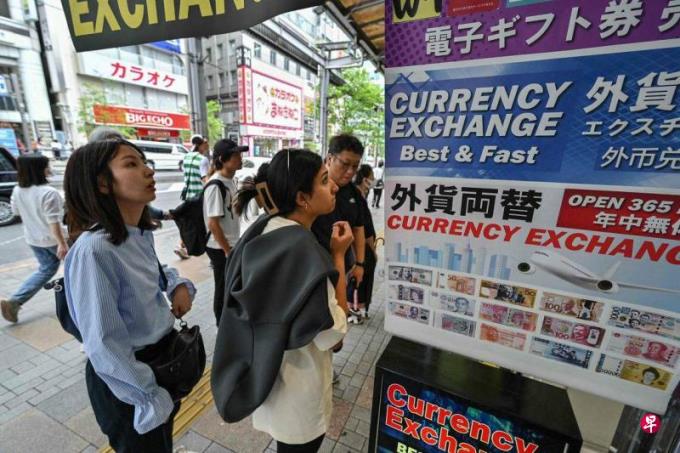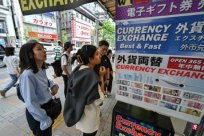
The yen exchange rate fluctuates sharply on Monday (April 29), and once quickly depreciated to $ 1 and more than 160 yen, a new low of 34 years since April 1990.After that, the yen rose sharply, reaching 154.5 yen.The exchange rate of the yen against Singapore also rebounded suddenly. From the earlier 1 Singapore yuan against 117 yen, it has rebounded to about 114.6 yen.
Relevant sources in Tokyo market pointed out that the Japanese government and the central bank may enter the market to interfere with the foreign exchange market.Kyodo News reported that the Japanese Ministry of Finance officials Kanada Shinren expressed "unsatisfactory advice" in the exchange market during an interview on Monday and emphasized that "the adverse effects that the severe fluctuations of (yen exchange rate) on the yen can not be ignored."
At the monetary policy conference on Friday (26th), the Bank of Japan decided to maintain its current easing policy.In the overseas market, the view that Japan will not raise interest rates in the near future will spread.On the other hand, it is believed that the United States is still large due to inflation pressure, and the view that the Federal Reserve has delayed the start of interest rate cuts.
Monday morning Japan time, the market accelerated the sales of the yen, and the exchange rate reached 1 dollar to more than 160 yen.In the afternoon, the momentum changed, and the market turned to buy yen. The exchange rate at 5 pm was 1 USD 1 exchanged for about 155.55 yen.
The yen continues to depreciate out of the country to travel and travel low
The continuous depreciation of the yen can attract foreign tourists to surge in Japan, but the Japanese yen falls again and again, and the Japanese people travel abroad.
The data from the National Tourism Administration of Japan shows that due to the depreciation of the yen, the high air ticket price, and the weak wage growth, the outbound tour is far below the level before the crown disease.In March of this year, the number of Japanese people went abroad at 1.22 million, 36.8%less than the same period in 2019.Previously, a large number of Japanese people went abroad for vacations at the end of April at the end of April, but according to data from large tourism companies JTB, the number of outbound tourists during the Golden Week this year was 520,000, only 2%of the domestic tourists.
Lianhe Zaobao interviewed in the financial area, and a Japanese female office worker complained to reporters.She said: "The yen value of the yen before the epidemic, I was almost every Golden Week to travel abroad. Now, the yen has depreciated too much, and traveling abroad has become a luxury."
A 40 -year -old man in a family room said: "My family of four goes abroad once, and it takes me for a few months of salary. I think it will be a chance to go abroad until the yen appreciates some."Interviewees said that due to weak Japanese yen, vacation in Japan is more cost -effective.
The old -fashioned Japanese hotel during the crown disease epidemic has been prosperous because Japanese people choose domestic tourism.By the two -hour drive from Tokyo, the Anton Hot Spring Hotel includes breakfast and dinner one night, and each person receives 15,000 yen (about S $ 130) per person.$ 375 (about S $ 510).
In the interview with the staff of Kinki in Japan's large travel agencies: "People who travel abroad have turned to domestic travel, and many people also choose luxury facilities such as hot spring swimming pools and spa centers.There is a British villa in the island, and there must be a place that resembles Thailand shopping streets.
Some analysts believe that the Japanese cannot go abroad due to the depreciation of the yen, and it is likely to become a frog at the bottom of the well in the long run.Some people in the aviation industry said that the yen exchange rate is best to maintain the level of $ 1 against 130 yen, so that it will not make the Japanese feel difficult to travel abroad.




